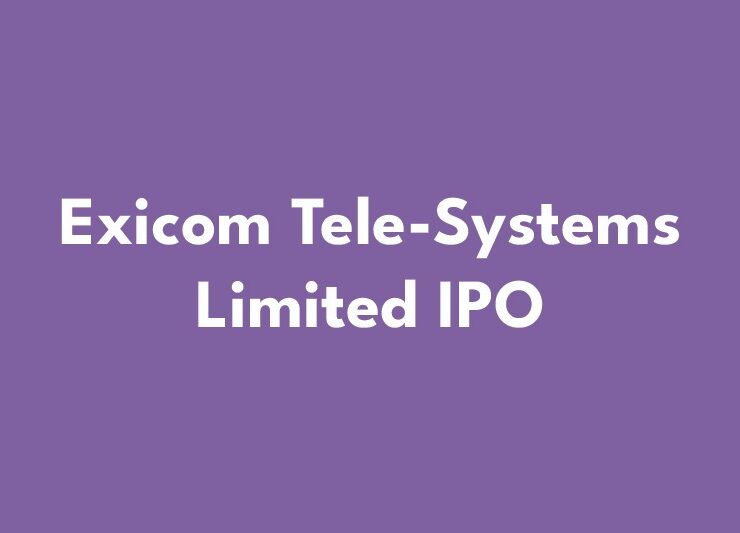SBI Cards IPO- The Biggest IPO of the year 2020

SBI Cards and Payment Services Limited i.e. SBI card is coming up with an IPO that is scheduled to be open for the retail investor on 02nd March 2020 and closes on 05th March 2020. SBI cards is India’s second-largest credit card provider which is promoted by State Bank of India. A Credit Card amongst the millennial is the second most common thing other than mobile phones. The credit card offers the cardholders (user) to borrow money from the issuer (mainly banks) with which the cardholder can pay for goods and services. Credit cards impose the condition that cardholders pay back the borrowed money, plus interest, as well as any additional agreed-upon charges. SBI cards is headquartered in Gurgaon, Haryana/Delhi NCR and have branches in over 50 cities across India.
| Credit Card Company/Bank (Market Share in %) | 19-Sep |
| HDFC Bank Ltd | 25.30% |
| State Bank Of India | 18.00% |
| ICICI Bank Ltd | 15.00% |
| Axis Bank Ltd | 12.60% |
| Citi Bank | 5.20% |
| Ratnakar Bank Limited | 4.40% |
| Kotak Mahindra Bank Ltd | 4.10% |
| American Express | 3.10% |
| Standard Chartered Bank Ltd | 2.50% |
| Indusind Bank Ltd | 2.30% |
| All Others | 7.60% |
| Total | 100% |
Competitive Strengths:
- 2nd largest credit card issuer in India with a strong track record of growth and profitability.
- Leading player in open market customer acquisitions using physical and digital channels in India.
- A well-known promoter in SBI with strong brand recognition.
- Diversified credit card portfolio and partnerships with leading brands across industries.
SBI Cards offers a wide range of credit cards to individual and corporate clients including lifestyle, rewards, shopping, travel, fuel, banking partnership cards, and corporate cards, etc. SBI Cards has partnered with several leading names across industries, including Air India, Apollo Hospitals, BPCL, Etihad Guest, Fbb, IRCTC, OLA Money and Yatra, amongst others.
SBI Cards IPO Details
| IPO Date | Mar 2, 2020 – Mar 5, 2020 |
| Issue Type | Book Built Issue IPO |
| Issue Size | 137,193,464 Eq Shares of Rs. 10 (aggregating up to Rs. 10,354.77 Cr) |
| Fresh Issue | 6,622,517 Eq Shares of Rs. 10 (aggregating up to Rs. 500.00 Cr) |
| Offer for Sale | 130,526,798 Eq Shares of Rs. 10 (aggregating up to Rs. 9,854.77 Cr) |
| Face Value | Rs. 10 Per Equity Share |
| IPO Price | Rs. 750 to Rs. 755 Per Equity Share |
| Employee Discount | Rs. 75 |
| Market Lot | 19 Shares |
| Min Order Quantity | 19 Shares |
| Listing At | BSE, NSE |
| P/E (x) | 45.8 |
| Market Cap (Rs Cr.) | 70890 |
After the IPO, SBI’s shareholding will fall to 70 per cent from 74 per cent and that of CA Rover Holdings will reduce to 16 per cent from 26 per cent.
Don’t have an Arihant Capital Demat account? Open Account Now
Performance Highlights
- Tremendous growth over last few years: SBI Cards has increased its active credit card base at an average of 33.1% over last 3 years ended Sept 2019 and has grown to 10.03 million active credit cards by Dec 2019.
- SBI’s 43 Cr huge customer base to drive growth: The company had earlier grew by acquiring customers from open market distribution channels but maintains strategy to use the vast base of 43 Cr customers of SBI who are mostly PSU employees with good credit scores. The company has increased acquiring customers through bank distribution channel from 35.2% (FY17) to 55.2% (FY19) and intends to do the same.
- Stable Asset Quality to continue going ahead: SBI Cards has a GNPA/NNPA ratio at 2.47%/0.83% as of Dec 2019and has been at similar levels over the last few years with similar guidance by the company.
- Dominant Positioning: Given its dominant position in the domestic credit cards market and strong parentage of SBI, the company is well-positioned to take advantage of the rising trend of digital payments.
- Income oriented Business Model: SBI Cards does not offer any credit card with zero annual maintenance charges for the customers. Hence, customers with both eligibility as well as requirement are the ones with SBI Credit Card and somehow the company believes that the AMC charges will drive them to spend more using an SBI Credit Card.
- Largest Co-Branding and Corporate Cards: SBI cards has issued 18 co-branded credit cards which is the highest in the Credit Card industry in India. Also, the company’s revenue from corporate cards is among the highest in the industry.
Key Risks to Investments:
- Relation with parent SBI and its brand: SBI Cards valuations may vary with the image and events that happen with parent SBI
- Highly Competitive Industry: SBI Cards has been outperforming several banking peers in the credit card segment. However, such lucrative business and margins attract a lot of competition from players both foreign as well as domestic banks/NBFCs.
- Delinquency rates going higher: Despite NPA levels contained at stable levels, an economic recession/slowdown can drag delinquencies higher from retail portfolio.
- Competition from Other e-wallets Application: Competition from prepaid instruments such as e-wallets and UPI Service is rising though they are mainly used for small transactions and do not offer credit period or benefit of reward points unlike credit cards. In addition, SBI Cards has adopted technologies to offer virtual cards on various mobile platforms thereby improving its appeal to tech savvy young generation.
- Over-expected growth in Future: Till now the credit card companies are penetrating the urban market for customer acquisition, vis-à-vis is a niche market for a product like Credit Card. However, going ahead, the credit card companies will have to tap the sub-urban & tier 2&3 cities where the credit-worthiness, unavailable credit data history and new to credit card use, etc. pose a risk to the business and its valuations.
- Regulatory risks on interest rates and charges: The Credit Cards business is highly exposed to regulatory risk on charges & interest rates received from the customers. Since the government is poised on encouraging digital payments and Credit Card transactions are mostly digital/POS, a risk on the high interests charged on the unsecured lending amount being cut down is not unlikely. The interest rate charged is way low in the advanced economies.
Valuation & View
We are positive on the growth story of SBI Cards owing to its association with parent bank SBI and its vast number of branches across the nation. Considering the equity after IPO and annualizing the net profit in the nine-month to December 2019, the company demands P/E multiple of nearly 45. It has no listed peers in India. A look at more mature markets such as the US reveals that American Express, which derives over half of the revenue from consumer services including credit cards, trades at a trailing P/E of around 17 with RoE of nearly 30%. While SBI Cards’ valuation looks aggressive, it reflects the faster growth in the Indian market as well as the company’s growth momentum. Therefore, we recommend investor’s to SUBSCRIBE for the issue.
Click here Download Full Research Report– https://bit.ly/3858lcW








